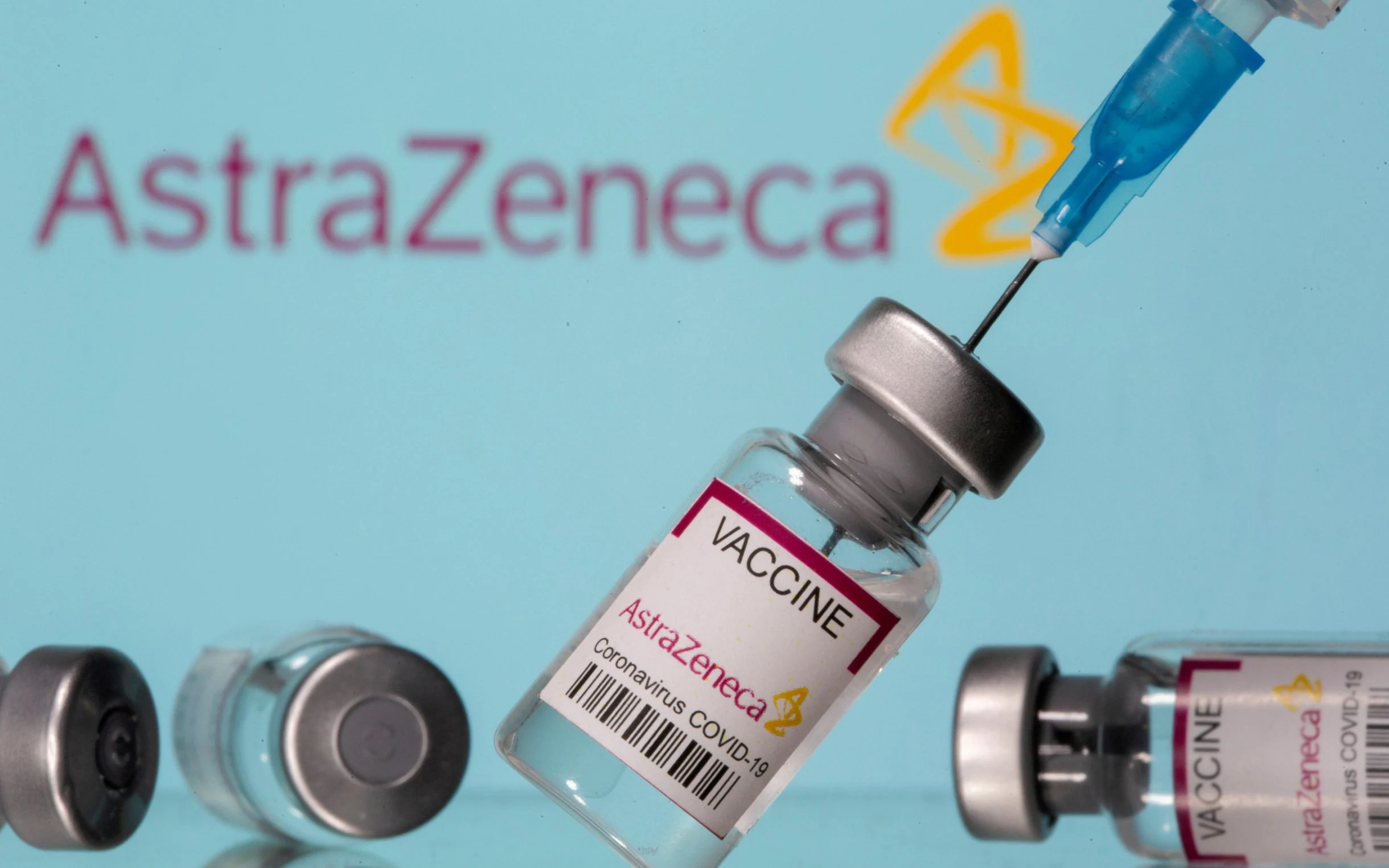AstraZeneca has admitted for the first time in court documents that its Covid vaccine can cause a rare side effect, in an apparent about-turn that could pave the way for a multi-million pound legal payout.
The pharmaceutical giant is being sued in a class action over claims that its vaccine, developed with the University of Oxford, caused death and serious injury in dozens of cases.
Lawyers argue the vaccine produced a side effect which has had a devastating effect on a small number of families.
The first case was lodged last year by Jamie Scott, a father of two, who was left with a permanent brain injury after developing a blood clot and a bleed on the brain that has prevented him from working after he received the vaccine in April 2021. The hospital called his wife three times to tell her that her husband was going to die.
AstraZeneca is contesting the claims but has accepted, in a legal document submitted to the High Court in February, that its Covid vaccine “can, in very rare cases, cause TTS”.
TTS – which stands for Thrombosis with Thrombocytopenia Syndrome – causes people to have blood clots and a low blood platelet count.
Fifty-one cases have been lodged in the High Court, with victims and grieving relatives seeking damages estimated to be worth up to £100 million.
READ ALSO: ‘They lied to us about COVID-19 vaccine’– Man speaks on experience
AstraZeneca’s admission – made in a legal defence to Mr Scott’s High Court claim – follows intense legal wrangling. It could lead to payouts if the drug firm accepts that the vaccine was the cause of serious illness and death in specific legal cases. The Government has pledged to underwrite AstraZeneca’s legal bills.
A scientist inside a laboratory, in the spectre substance process room, handles equipment that produces the vaccine. The worker, dressed in a blue gown and wearing a mask and rubber gloves, is surrounded by laboratory equipment
A 2021 view inside Oxford Biomedica, where the AstraZeneca Covid vaccine was produced – John Lawrence
In a letter of response sent in May 2023, AstraZeneca told lawyers for Mr Scott that “we do not accept that TTS is caused by the vaccine at a generic level”.
AdvertisementBut in the legal document submitted to the High Court in February, AstraZeneca said: “It is admitted that the AZ vaccine can, in very rare cases, cause TTS. The causal mechanism is not known.
Lawyers argue that the AstraZeneca-Oxford vaccine is “defective” and that its efficacy has been “vastly overstated” – claims AstraZeneca strongly denies.
Scientists first identified a link between the vaccine and a new illness called vaccine-induced immune thrombocytopenia and thrombosis (VITT) as early as March 2021, shortly after the Covid-19 vaccine rollout began.
Lawyers for the claimants argue that VITT is a subset of TTS, although AstraZeneca does not appear to recognise the term.
The Government has indemnified AstraZeneca against any legal action but has so far refused to intervene.
In a statement AstraZeneca said: “Our sympathy goes out to anyone who has lost loved ones or reported health problems. Patient safety is our highest priority, and regulatory authorities have clear and stringent standards to ensure the safe use of all medicines, including vaccines.
“From the body of evidence in clinical trials and real-world data, the AstraZeneca-Oxford vaccine has continuously been shown to have an acceptable safety profile and regulators around the world consistently state that the benefits of vaccination outweigh the risks of extremely rare potential side effects.”
READ ALSO: Man injured by Pfizer COVID-19 vaccine wins ‘landmark’ claim against employer
The company is pointing out that product information relating to the vaccine was updated in April 2021, with the approval of the UK regulator, to include “the possibility that the AstraZeneca-Oxford vaccine is capable, in very rare cases, of being a trigger for” TTS.
Independent studies show the AstraZeneca vaccine was incredibly effective in tackling the pandemic, saving more than six million lives globally in the first year of the rollout.
The World Health Organisation has said the vaccine was “safe and effective for all individuals aged 18 and above” and the adverse effect that has prompted the legal action was “very rare”.
AstraZeneca is the second largest publicly listed company in the UK, with a market capitalisation of more than £170 billion. Its chief executive, Sir Pascal Soriot, is the highest-paid boss among FTSE 100 companies, with earnings close to £19 million.


 Business6 days ago
Business6 days ago
 Inspirational6 days ago
Inspirational6 days ago
 Politics6 days ago
Politics6 days ago
 Featured6 days ago
Featured6 days ago
 Business6 days ago
Business6 days ago
 Business1 week ago
Business1 week ago
 Latest5 days ago
Latest5 days ago
 Education6 days ago
Education6 days ago




